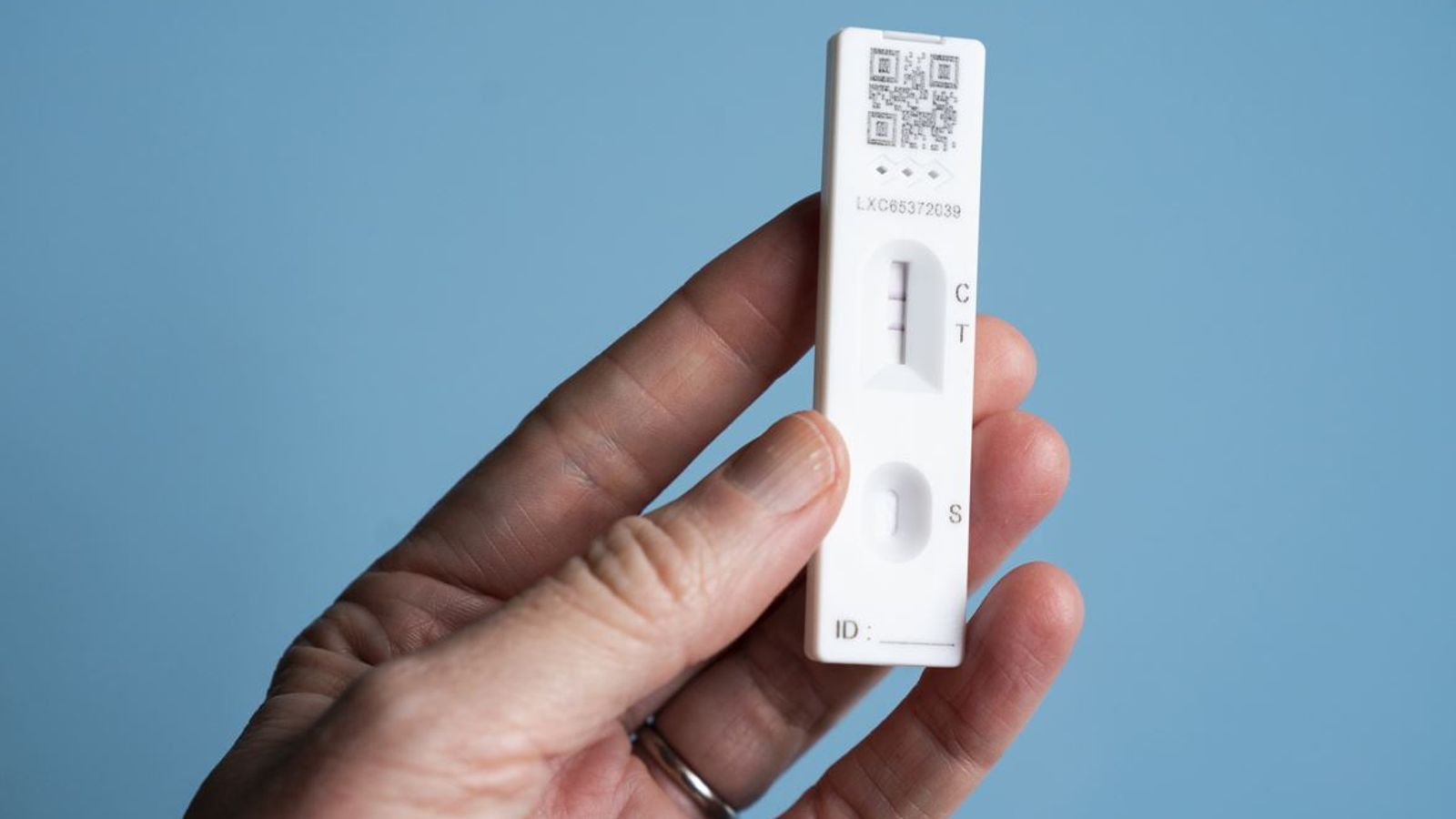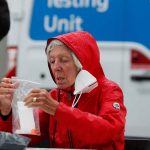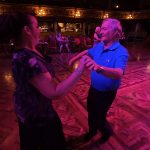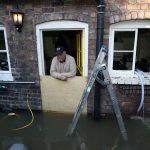Free COVID-19 tests come to an end this week in England, and will only be available to the most vulnerable, as cases continue to rise across most of the UK.
People scrambling to order the last available lateral flow tests are being discouraged from ordering packs when they try to access them online.
Free LFTs will be scaled back from 1 April, with only the over-75s and over-12s with weakened immune systems having access to them.
Everyone else will have to buy the tests.
“Most tests are now needed for people at higher risk,” according to the government’s online ordering system.
‘Disaster’ that NHS staff will have to pay for tests
Ministers have been accused of leaving NHS staff in the dark as to whether or not they will need to pay for their own coronavirus tests.
COVID-19: China’s coronavirus zero policy is actually two policies – it just depends where you are
COVID-19: Chinese city of Shanghai split in half using Huangpu River for new two-part lockdown
People who haven’t had COVID yet probably have no friends, a Korean doctor says
The NHS Confederation said that workers may be forced to fork out around £50 a month for tests if they have to pay themselves.
Currently, health workers are still required to test twice weekly for the virus.
Danny Altmann, professor of immunology at Imperial College London, said on Monday that ending free coronavirus testing for healthcare workers is “a disaster”.
He told Times Radio that it is “unfair, unkind and just not workable” to expect NHS staff to pay for their own tests.
It comes as new figures show that staff absences at NHS hospitals in England due to COVID-19 have jumped more than 30% week-on-week, the biggest increase since the start of the year.
An average of 23,127 staff at hospital trusts in England – 2% of the total workforce – were absent every day last week, either because they were ill with the virus or self-isolating.
200,000 children off school with COVID
Education Secretary Nadhim Zahawi said that some 200,000 children are off school in England due to COVID, before promising more details on rapid testing this week when the free provision is stopped.
He said further information about lateral flow tests will be set out on Friday – when mass free testing will end.
School leaders have also expressed concern over the “worrying” recent COVID spikes in schools, warning that the issue could get worse when families have to pay for tests.
Paul Whiteman, general secretary of school leaders’ union NAHT, said: “COVID cases have been spiking again in many schools over the past week or so – in line with the rising numbers nationally. Removing free access to lateral flow tests at this point feels irresponsible.
“It will make tracking and controlling COVID almost impossible. There is a lot of anxiety from school leaders about what could happen once tests are unavailable.”
UK cases rising
According to the latest Office for National Statistics (ONS) figures, around one in 16 people in private households in England – or 3.5 million people – are likely to have had COVID in the week to 19 March.
This is up from one in 20, or 2.7 million people, in the previous week and is the third week in a row that cases are understood to have risen.
Please use Chrome browser for a more accessible video player
The sharp rise in cases across most of the country is due to the Omicron BA.2 variant, a more transmissible form of Omicron, the ONS said.
Wales has experienced its third successive jump in infections, with the figure up from 125,400 people, or one in 25, to 192,900 people, or one in 16 – a record high.
In Scotland, cases have been on the rise for eight weeks in a row and have also reached another record high, with nearly half a million people (473,800) likely to have had the virus last week, or one in 11. This is up from 376,300 people, or one in 14, the previous week.
Northern Ireland is the only UK region that is seeing infections falling for a second successive week, and cases now stand at an estimated 108,700 people, or one in 17, down from 130,600 people, or one in 14.
But the overall data is further evidence that the virus is becoming rapidly more prevalent in the UK and come as the number of people in hospital with the virus continues to increase.
Booster jabs offered this week
More than 600,000 people will be invited for a COVID booster jab this week as infection levels climb close to record highs in England.
Since rolling out spring boosters last week, more than 470,000 people have come forward for a jab, NHS England said.
Meanwhile, separate new data has shown that fewer than half of immunocompromised people in England have had a COVID vaccine booster dose.
In November, the Joint Committee on Vaccination and Immunisation (JCVI) announced that immunocompromised people – the group the NHS call severely immunosuppressed – who have weakened immune systems should have a booster dose three months after their third primary dose.
But the new figures from NHS England revealed that 255,422 of the 561,356 immunocompromised people in England had had a booster by 24 March.






















